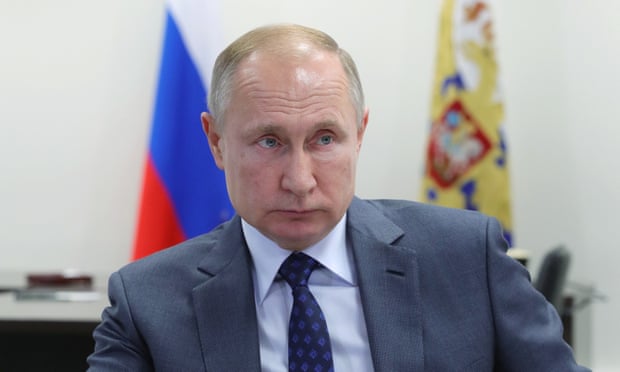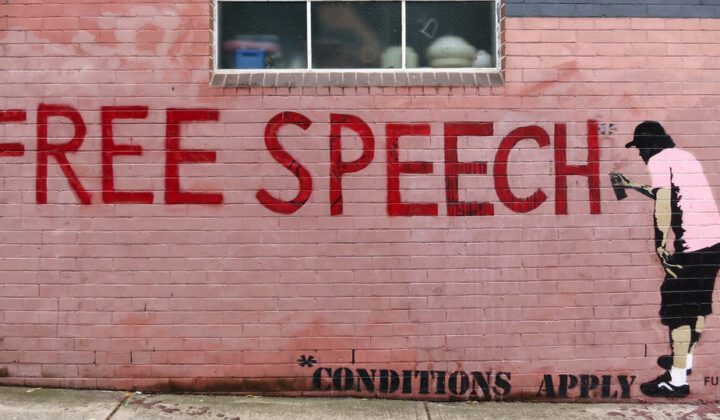Imitation Is the Highest Form of Flattery
On January 15, Russian President Vladimir Putin proposed dramatic changes to his country’s constitution that would transfer power from the President to the Prime Minister and the head of the State Council (a formerly obscure entity). At the same time, his entire cabinet, including Prime Minister Dmitry Medvedev, resigned without a credible explanation. Though ostensibly these changes institutionalize greater checks and balances on the executive, many experts believe their true purpose is to allow Putin to continue his 20-year span in power despite being term-limited as President. This would not be the first time Putin has found creative ways to perpetuate his control over the Russian government—in 2008, he served as Prime Minister for a term before returning to the Presidency for a third time.
Another proposed change, which hasn’t received as much attention in the media, is a measure to prevent people who have ever possessed dual citizenship or a residence permit outside of Russia from becoming president, effectively preventing exiled opposition figures from mounting political campaigns in the future.
- Why is Putin bothering to pay lip service to democratic processes if, in fact, he’s not actually observing them?
In a world where democratic procedures are the norm (at least aspirationally), authoritarians have to pay tribute to the rituals of democracy in order to maintain legitimacy. On paper, the Russian constitution does appear committed to liberal-democratic principles. But laws are only worth something if they’re enforced properly and equally. Putin has tried to maintain the appearance of legality despite frequently engaging in anti-democratic practices such as election fraud and even violence against dissenters.
In a prominent example, Putin claimed that the annexation of Ukraine’s Crimean Peninsula was legal because the people of Crimea had voted in a referendum to join The Russian Federation. However, the referendum only took place after Russian soldiers without insignias (colloquially known as “little green men”) seized control of the peninsula. In effect, the referendum, which took place in a climate of intimidation and violence, served to retroactively excuse an illegal invasion. - Why should we care about what Putin does in Russia or in Ukraine?
Putin’s actions have reverberations around the world. Most of the international community has an interest in preventing violations of national sovereignty for the purposes of territorial expansion, something that Russia is accused of doing in Ukraine. Furthermore, by consolidating and perpetuating his power internally, Putin offers a model to wannabe strongmen in other parts of the globe. Indeed, Russia is alleged to have actively undermined other countries’ democracies by propping up, financing, or in other ways supporting far-right populist leaders including the leader of France’s Front National, Marine Le Pen and former Italian Deputy Minister Matteo Salvini. The American intelligence community is also unanimous in claiming Russian interference in the 2016 election.

Haiti’s President Blocks Legislative Elections, Collapsing the Separation of Powers
On January 13, Haitian President Jovenel Moise began ruling by decree after refusing to hold a constitutionally-mandated legislative election. Without a legislative election, there is no parliament, and without a parliament, he essentially functions as a king. This adds to the chaos lately engulfing Haiti. Since July 2018, Haiti has been the scene of massive protests due to food and fuel shortages as well as allegations of corruption against top officials. More than 200 people—including at least 44 police officers—have been killed during the protests.
- Are these new powers a gift or a curse for Moise?
The absence of a parliament may temporarily have emboldened President Jovenal Moise, who can now rule without any notable checks or balances. He claims that this newfound power gives him a unique opportunity to overhaul the Haitan constitution. However, perhaps unwittingly, he may be redirecting all responsibility for Haiti’s economic and social problems—including low growth, high inflation, and the soaring cost of basic food items—onto himself. This means that if the situation in Haiti doesn’t improve, and it likely won’t, people will know exactly whom to blame, increasing the probability of long-term instability. - Is there a legitimate need to overhaul the Haitian constitution?
There may be, but President Moise’s approach directly contravenes accepted democratic practices. It is true that the Haitian constitution has many problems—it is written in such a way that makes cooperation between the executive and legislative branches overly complex and prone to friction. Nevertheless, authoritarian figures rarely choose to limit their own power voluntarily. This is especially true in a country like Haiti which—despite enjoying periods of democracy—has endured long stretches of authoritarian rule. Moise’s ends-justify-the-means approach to politics rarely works well in practice. The means should be congruent with the ends. If one uses authoritarian means, the outcome will likely be authoritarian. If, however, one were to use democratic means, then the outcome is more likely (though is not at all guaranteed) to be democratic.

Photo: Paul Faith/Agence France-Presse — Getty Images
New Northern Irish Government Demonstrates the Power of Compromise
On January 11, a new power-sharing government was formed by the five main Northern Irish parties after three years of deadlock. The Northern Irish Assembly, called “The Stormont” is the region’s representative body with the power to pass laws independent of the central government in London. Over the past three years, in the absence of a functioning regional assembly, decisions were made by civil servants with limited powers, major projects were left unfulfilled, and public services came under increasing strain. The new governing agreement represents an important step towards unity for a community divided by language, culture, and politics.
- Why is the situation in Northern Ireland so critical right now?
Northern Ireland has only been a regional democracy since the 1998 Good Friday agreement, which was a crucial step in bringing decades of violent conflict to an end. Now, with the UK on the verge of leaving the European Union, of which the Republic of Ireland is a part, the status quo on the Island is at risk. A revived assembly should enable the Northern Irish to have an effective voice in the important discussions to come on the status of Northern Ireland. This representation will be crucial in determining whether or not Northern Ireland will remain in the EU customs union. Fortunately, the role of the Irish and British governments in bringing about a deal on the assembly shows that major international and regional stakeholders are invested in strengthening Northern Irish representative institutions.

Candidates Advance their Visions for Democracy Reform
Michael Bloomberg is the latest in a long line of Democratic primary candidates to advance Democracy reform as a core part of their agenda. On Friday, he released a proposal calling for seamless voter registration (automatic or easy online registration), an end to purges of voter rolls, independent state redistricting commissions to tackle gerrymandering, funding for upgrading and maintaining election infrastructure, and the restoration of voting rights to felons regardless of whether or not they’ve paid all their fees and fines.
These reforms were previously introduced in the House of Representatives as the “For the People Act of 2019” (commonly known as HR1).
Other Democratic candidates have advanced their own visions of democracy reform.
- What are some of these proposals?
Senator Elizabeth Warren has proposed broadening the applicability of ethics rules to include Supreme Court justices as well as a constitutional amendment to protect the right to vote. Senator Bernie Sanders has called for public financing of federal elections and making Election Day a national holiday. Senator Amy Klobuchar has called for a new voting rights act and a federal law restoring and guaranteeing the voting rights of former felons.
Although these proposals cover many different aspects of democracy reform, they all share an emphasis on expanding the number of people who can vote and the overall transparency of the process.
But Democrats are not the only ones pushing for democracy reform in today’s political landscape. President Donald Trump has previously indicated a willingness to reform some aspects of American democracy. In October 2016 then-candidate Trump stated: “If I’m elected president, I will push for a constitutional amendment to impose term limits on all members of Congress.” While the President hasn’t acted on this promise yet, it still reflects a broadly held perception that career politicians are not sufficiently in touch with their constituents.
Others on the Right, including John Pudner, the Executive Director of Take Back Our Republic, have worked on building support for bipartisan, independent commissions to fight gerrymandering by drawing congressional and legislative maps in a fair manner. Take Back funds and campaigns in support of state ballot initiatives against gerrymandering and has already seen success in Michigan. - Why do these proposals matter?
These reforms, if implemented, have the potential to dramatically alter the landscape of American democracy. From making it easier to vote, to improving the security and fairness of our elections, they promise to make America’s representative institutions more accountable and more representative of the population. A new Brennan Center report, for instance, “finds significant gains in voter rolls everywhere automatic voter registration has been implemented.” Meanwhile, redistricting reform can ensure that popular support will more directly correlate with electoral success so that a party with 30% of the votes cannot earn 60% of the seats.





